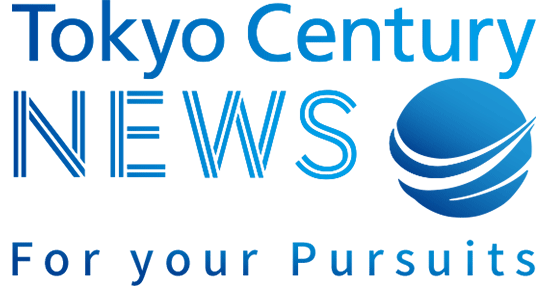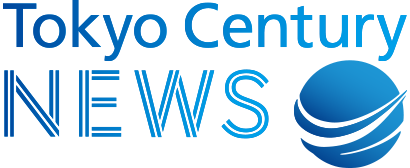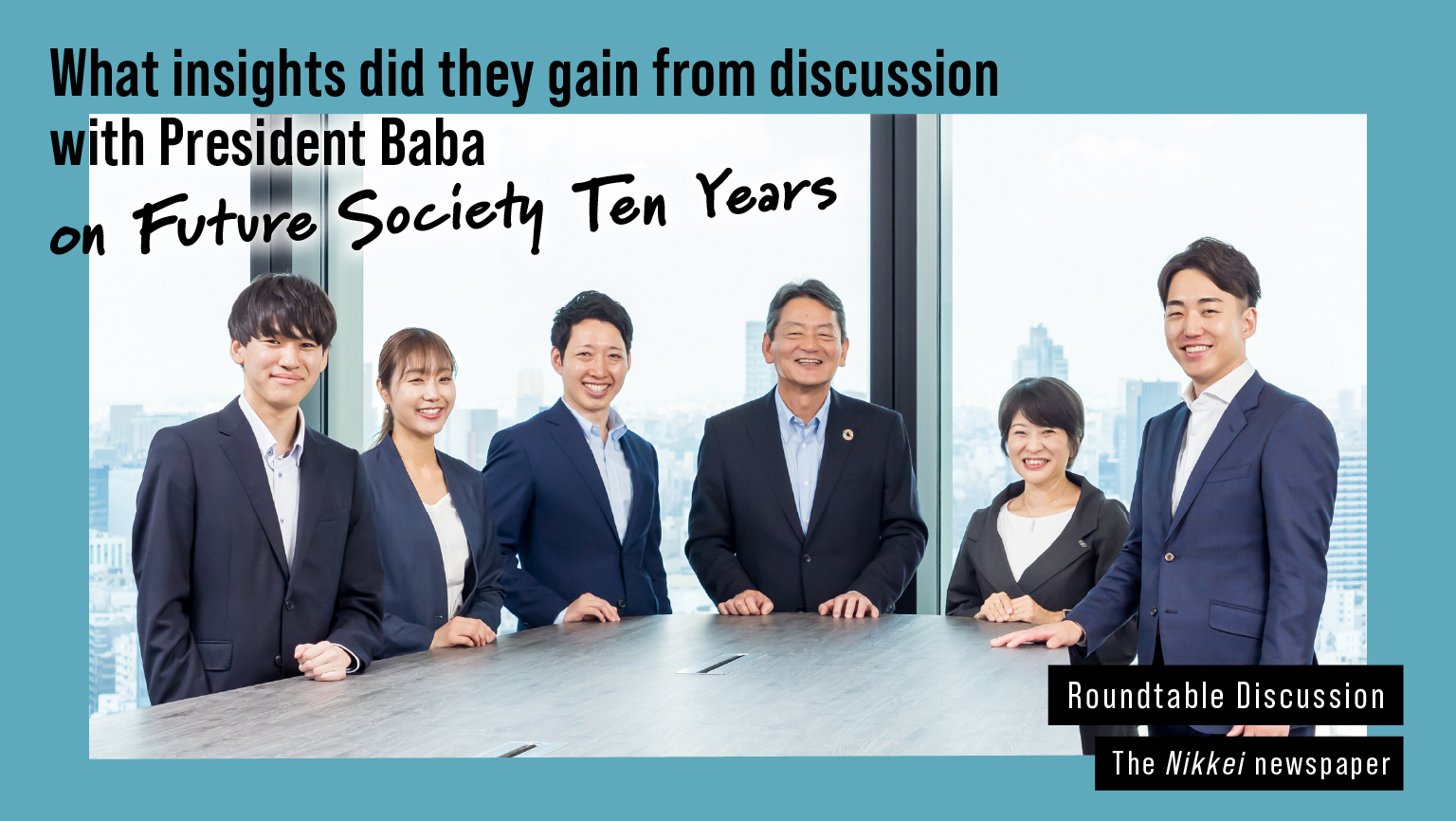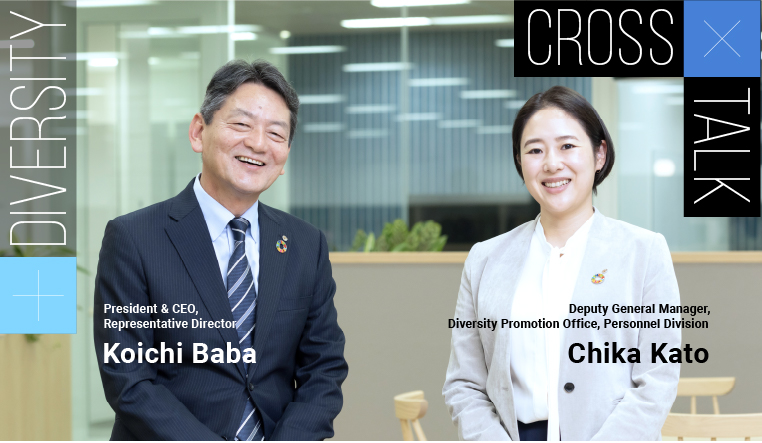
Tokyo Century’s Sustainability Committee Chairman on the Ideal Leader for the Era of Diversity
Mar 17, 2021
Tokyo Century focuses on a variety of sustainability initiatives, with human resource development at the center of these efforts. Since you are spearheading these initiatives, what type of employee and leadership do you think is ideal? Also, we asked Baba Koichi, Director and Senior Managing Executive Officer and Chairman of the Sustainability Committee, to share his views on promoting sustainability by reflecting on his own career.
“God Is in the Details” and Thoughts About This Idea
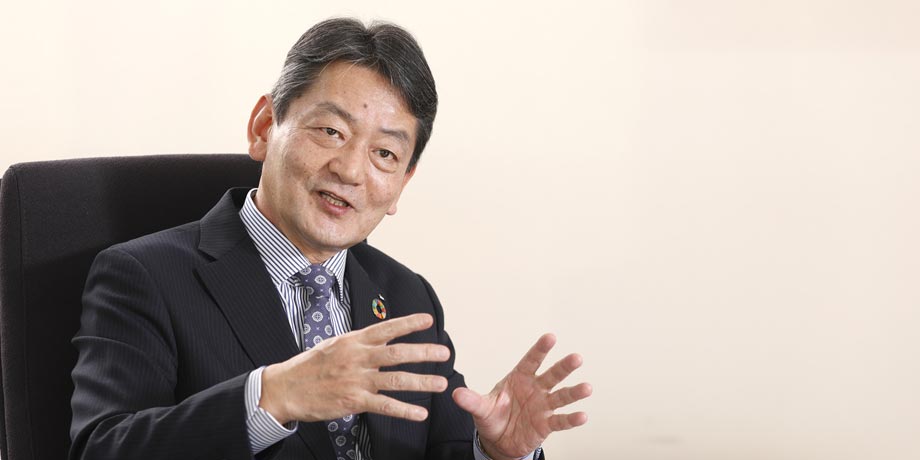
Tokyo Century upholds five key materiality issues in its efforts to achieve corporate sustainability, one of which is an “Enhanced work environment, leading to strengthening of Human Resources.” Initiatives for raising employee engagement, including the Career Design Office established in fiscal 2019, the employee awareness survey, and 360-degree evaluation, are intended to address this materiality while also providing the foundation for nurturing personnel to create and sustain Tokyo Century’s businesses.
These initiatives are being spearheaded by Director Baba, who is concurrently the Chairman of the Sustainability Committee. He has especially strong feelings about the ideal businessperson for our times as well as human resource development. In particular, he said, the ideal image of leadership today has significantly changed from that in the past.
“The 21st century is a time of major changes. As in the case of GAFA, many companies have become global enterprises within a decade or so, while new business models are born every day. Workstyles have become diversified, giving rise to the concept of the gig worker. As diversity touches every aspect of life, from personal values to lifestyles, the idea of an arbitrary leader who issues orders to mobilize subordinates has become outdated.”
As a leader himself, he remarked that there is one thing he has always valued.
“I make a point of listening carefully to many voices in the company including those of my subordinates. I practice what is known as active listening. When you’ve lived nearly 60 years, you can’t help developing fixed ideas in your mind that make it difficult to keep up with new concepts and values. That’s why it’s important to remain humble and listen to the opinions of young people without belittling them. Harboring stereotypes can make you unknowingly dismiss innovative and unique ideas. And that can lead to considerable loss both for yourself and the company.”

“God is in the details” This is Baba’s favorite saying. When you are too focused on the big picture, you might miss ideas and opinions that lead to growth or progress. And so a leader must always stay in tune with the “details” of an organization. To do so, he believes, you must listen to the voices of as many employees as possible.
His statement, “allowing all employees to speak up and incorporating their ideas” is reflected in the 360-degree evaluation mentioned earlier as well as the establishment of the Career Design Office, which provides consultation to employees on designing their careers.
Baba’s Leadership Mindset: Lending an Ear to Subordinates, No Matter How Busy You Are
Baba said that he strives to be attentive every day to maintain his active listening skills.
“No matter how busy I may be, unless I’m receiving visitors or leaving the office for an appointment, I’ll drop whatever I’m doing and listen to what a subordinate has to say. I’d never tell them to come back later because I’m busy. Once you do that, your subordinates will tend to hesitate before approaching you. And that means losing a valuable opportunity to hear their opinions, which in turn could lead to deterioration of our open corporate culture.

Baba maintains another daily routine. Before leaving the office, he makes a round of the desks of all team members, which he’s done for the past 20 years.
“I have kept to this routine since I was appointed to a leadership position. The first team for which I was responsible consisted of about 40 members, and I was anxious about being able to grasp the character and daily status of all of them. So, I began going around the desks and exchanging a word or two with each of them. As I continued doing this, I was able to sense minor changes, such as someone appearing tired or pale.
However, the spread of remote work caused by COVID-19 has made such in-person communication difficult. Under these circumstances, how can we capture the voice of team members? Baba shares his approach.
“Online communication makes people less likely to speak their mind if you simply ask them whether they are all right or whether they need help. Rather than asking vague questions, people are more forthcoming with their true feelings when you inquire about a specific topic, such as progress on a project they’ve been assigned.”
Baba also said that a leader’s job is to demonstrate results.
When a subordinate comes to you seeking advice on a problem, he said, you should respond by making a decision on the spot. Even when the decision isn’t easy, you should provide something concrete that helps the employee understand the core problem and points toward a solution. According to him, it’s important for the personal growth of the subordinate to not provide the entire solution, but some room should be left for coming up with a solution on their own. Achieving an optimal balance between leadership and personal development is another major theme for Baba.
Personal Experience on Sustainability Gained as a Young Man Living in the United States
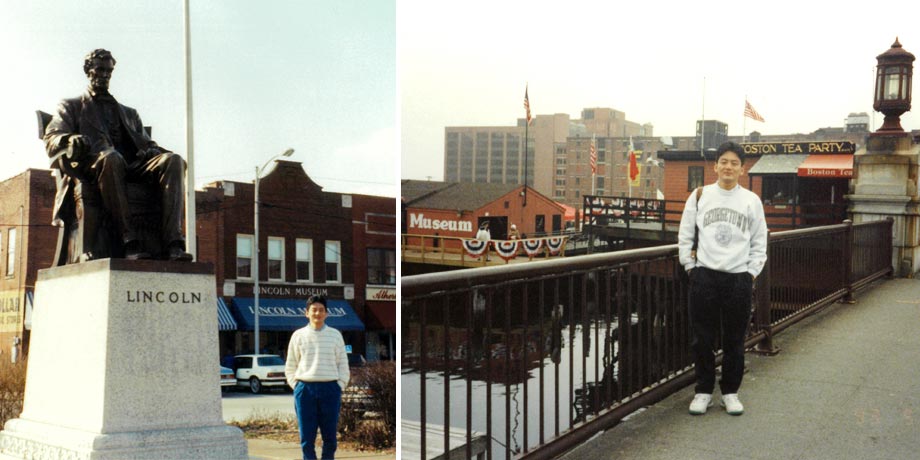
Baba experienced diversity when he lived in the United States.
Baba recalls learning from his personal experience about how to approach sustainability. It was during the 1990s, when he was studying at a law school in the United States and was then in his early 30s.
The U.S. legal system differs from Japan in several ways. The biggest difference lies in the co-existence of laws established by the United States Congress and the unique laws of each state. As an extreme example, if a New York resident causes a car accident in the State of Texas and hits a car driven by a resident of Pennsylvania, determining the governing state law for claiming damages is extremely complicated.
“American history was built under such complex social circumstances. When I was studying law in the United States, I felt that this historical background was the source of the nation’s strength. The United States became a major country not just by virtue of its legal system but as its people adjusted interests and sought solutions as needed in the context of social conflict among people of different races, values, nationalities, and cultural backgrounds.”
Living amid the diversity of overlapping cultures is a distinctive characteristic of the United States as a nation and its major strength. Baba looks back on those days as an opportunity to learn at firsthand about the strength created by bringing together diverse values. The experience he gained in that country as a young man is closely linked to his efforts to enhance Tokyo Century’s sustainability, which encompasses the ideas of diversity and inclusion.
Encouraging Employees to Actively Take on Challenges and Providing the Utmost Support
When asked for his advice to young people, Baba’s response was: “Read as many books as possible.” This reflects his own character as an avid reader.
“We should fear adopting stereotypes in our ideas and values. Once our thoughts become fixed, we’re unable to appreciate new ideas and ways of thinking. That’s why we must intentionally incorporate new knowledge every day. Reading books offers a perfect opportunity for discovering unknown worlds and other ways of thinking.”
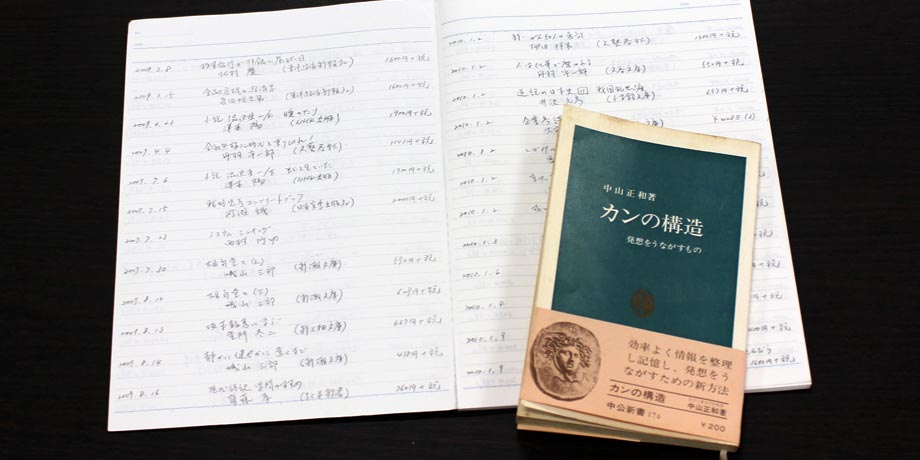
Baba recommends Structure of Intuitions-What Encourages Ideas (NLA)
This book is about the human brain. You might think you’ve forgotten what you’ve seen, touched, or experienced, but those things remain deep inside your head. When faced with a problem, your brain can mobilize all those memories to work out countermeasures. What this book says is that if you input lots of information every day, you’ll be able to come up with solutions to problems by drawing from that store of knowledge.
It is important to straightforwardly engage with a substantial text produced by an author’s dedication, precisely because we live in a time when information is easily obtained through the Internet and social media. Baba’s desk is covered with books he has already read along with others in areas of his current interests. Some employees have expressed their interest in a stack of books in the “Baba Library” for offering a glimpse into his mind.
At the end of the interview, Baba conveyed his message to Tokyo Century employees with a hint of shyness by citing Shuji Terayama, one of his favorite writers.
“One memorable quote from Shuji Terayama is: 'Don’t look back, don’t look back, you’ll find no dreams behind you.’ It means we must look to the future because dreams do not inform the past. Because we live in a time of drastic change, some of our responses to challenges may end in failure. But the important thing is to keep our heads up and not give in to feelings of defeat. This requires creating an environment in which employees can constantly take on challenges. That’s my responsibility, which ultimately leads to achieving sustainability for the company.”
“Solutions to Your Pursuits” is the corporate slogan of Tokyo Century. The company will create an environment that encourages employees to live by these words by continuing to rise to every challenge. Baba himself will keep pursuing his own challenges.
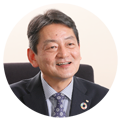
Baba Koichi
Director and Senior Managing Executive Officer President, Corporate Planning Unit
Joined Tokyo Century in 2014. In his current position as Chairman of the Sustainability Committee, he oversees a number of sustainability-related initiatives.
*The contents of the article and the position titles are as of the date posted.
RECOMMEND ARTICLES
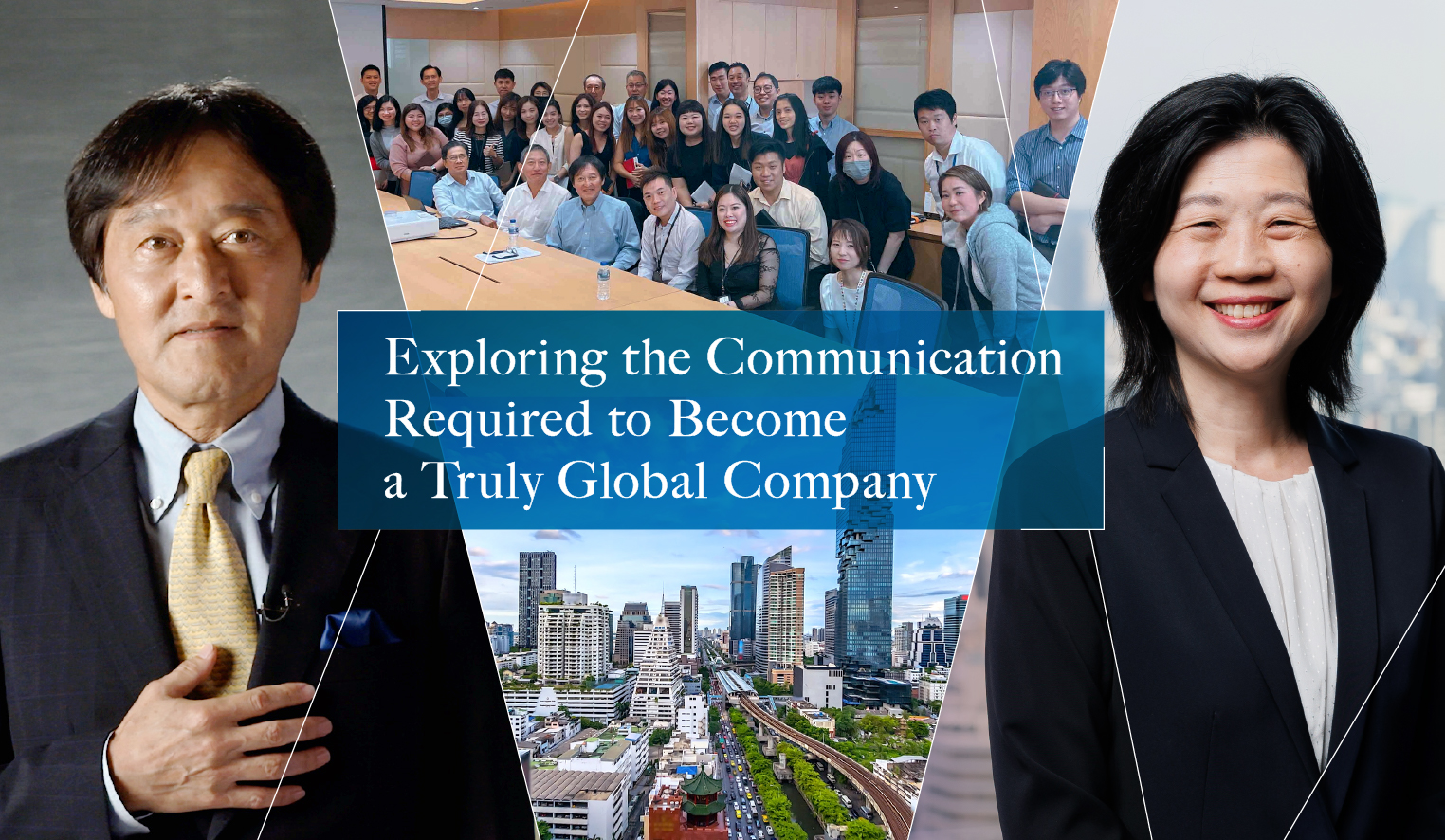
—Exploring the Communication Required to Become a Truly Global Company
Aug 21, 2024
Communication has be…
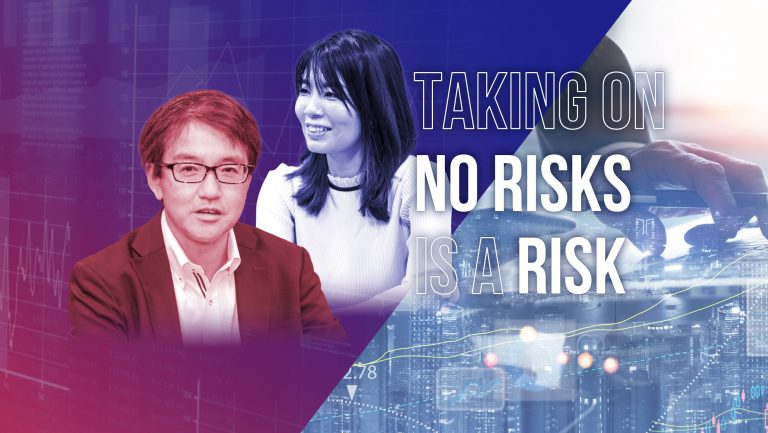
Dec 20, 2023
New risk factors hav…
